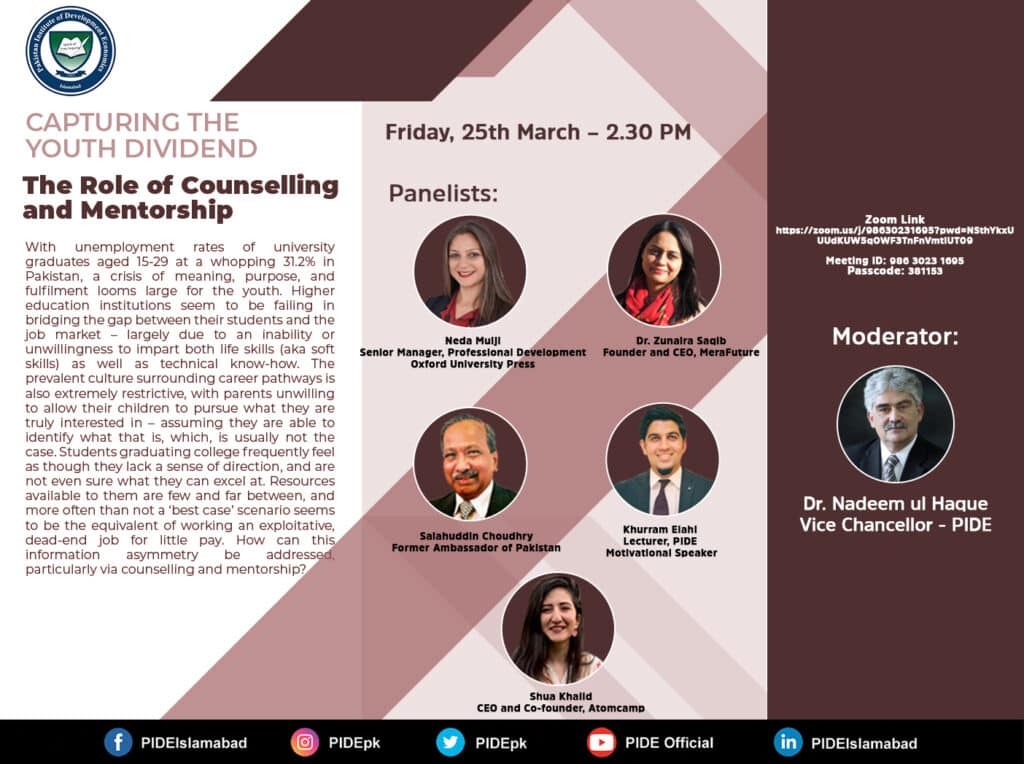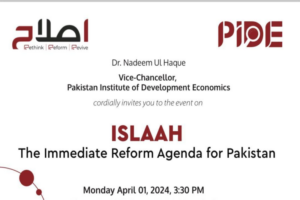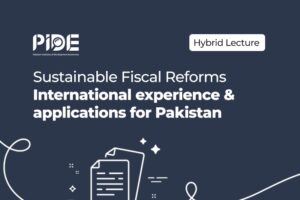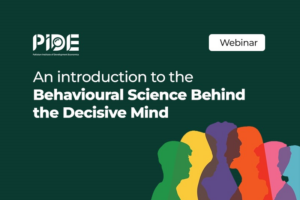Capturing the Youth Dividend: The Role of Counselling and Mentorship
Friday, 25th March – 2.30 PM
With unemployment rates of university graduates aged 15-29 at a whopping 31.2% in Pakistan, a crisis of meaning, purpose, and fulfilment looms large for the youth. Higher education institutions seem to be failing in bridging the gap between their students and the job market – largely due to an inability or unwillingness to impart both life skills (aka soft skills) as well as technical know-how. The prevalent culture surrounding career pathways is also extremely restrictive, with parents unwilling to allow their children to pursue what they are truly interested in – assuming they are able to identify what that is, which, is usually not the case. Students graduating college frequently feel as though they lack a sense of direction, and are not even sure what they can excel at. Resources available to them are few and far between, and more often than not a ‘best case’ scenario seems to be the equivalent of working an exploitative, dead-end job for little pay. How can this information asymmetry be addressed, particularly via counselling and mentorship?
Agenda:
- How have educational institutions failed in granting children a sense of direction?
- How can technological capabilities be harnessed to propagate useful ideas to kids?
- What is the role of career counselling, and what do its various components (aptitude testing and identification of areas of interests) constitute?
- How can a sense of meaning and purpose be instilled in the youth to prompt them away from idleness, drug use, and in some cases even crime?
- How can the government be engaged in serving as an intermediary body between educational institutes and the job market?
- How can the pathology of ‘log kia kahengay’ in our cultural milieu be addressed – and parents encouraged to allow their kids to pursue what they truly enjoy, regardless of the risks involved?
- How can the risks of certain career choices (such as the arts) be mitigated?
- How can the idea of ‘jobs’ be expanded to include unconventional choices, such as e-sports – which is a rapidly growing industry that Pakistan is actively engaged in?
- How can children be taught to endure adversity, an indispensable facet of the journey to success?
- How can the education system be rethought to not treat students from a young age as mass produced commodities but rather unique individuals with varying aspirations?
- How can ‘capacity building’ through short vocational courses (online and offline) be leveraged to teach children specific skills that they can monetize both domestically as well as internationally through freelance gigs?








